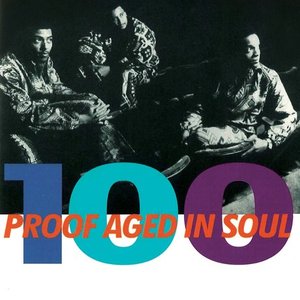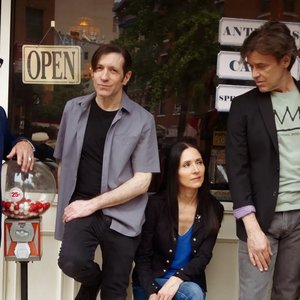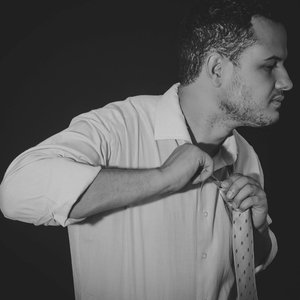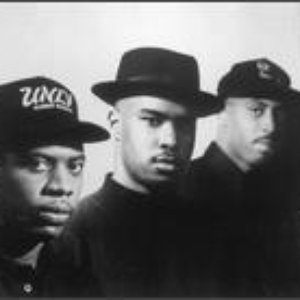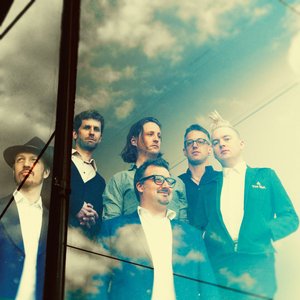Biography
“Whachoooooo got for me?” asks Ricky Byrd, in the distinctive born-in-the- shadow–of-Yankee Stadium speak that no number of tours with superstars Ian Hunter or Roger Daltrey (to name merely two of his former employers) or hobnobbing with guitar slingers Woody, Pagey and Keef has ever knocked outta dis boy from da Bronx. But the question, as anyone who is welcomed into his humble presence on or offstage, even before being wrapped in his warm, unaffected bear hug realizes fairly immediately: the question is not what we (or anyone else for that matter) have for Ricky Byrd, it’s what he’s got for us. And it is a surprise.
Byrd is probably most closely identified with the monstrous power chords that helped define Joan Jett and the Blackhearts’ platinum cover of “I Love Rock & Roll,” and ensure its eternal rotation daily throughout the universe. His blistering rhythms and soaring leads played equally powerful roles in the Blackhearts’ subsequent great hits. Byrd remains eternally grateful for the opportunity to orbit the globe more frequently than the space shuttle and live out the “Number One with a Bullet” dream most mortals only fantasize about. But after a dozen years, it was time for a change. And the confines of what Joni Mitchell has so poignantly called “the star making machinery” could never have satisfied, much less revealed, the soulful, complete musician and mature artist Byrd proves himself to be on what is, astoundingly, for a dude who’s been making major label albums for decades, his solo debut, Lifer.
“I know I can play guitar,” he laughs with a characteristic modesty that has made him the consummate go-to team player whose classic Brit/Am blues, soul and rock n’roll gifts have been appreciated by innumerable connoisseurs from the late Steve Marriott to Southside Johnny, merely a few of the notches on Byrd’s impressive resumé. Southside, a frequent collaborator, also contributed to Lifer.
“Thing is,” he continues,” for this CD I wanted to pull out all the stops and show what I can really do. That goes for songwriting and singing as well. When I was a kid this is the kind of music that molded me into who I am as a musician and that’s the kind of CD I wanted to make…PERIOD!! Love me or leave me!” he cracks.
Although he received writing credits for numerous Joan Jett originals and has subsequently had many other tunes covered by various artists, his accomplishments in this area may be one of the industry’s better-kept secrets. In addition to Southside, old friend and songwriting guru Richie Supa occasionally lent a pen and a brain to pick, but Byrd proves perfectly capable of turning out great songs all on his own as well as performances largely recorded and co-produced with Bob Stander in his aptly named Byrd Sanctuary home studio, after work initially began in Nashville with Producer Ray Kennedy, perhaps best known for his work with Steve Earle.
But who knew he could sing? Never mind that he may very well be, as recent warm-up shows (when he’s not too busy backing legends and goddesses like Mavis Staples, Ronnie Spector and Darlene Love for shows he does fairly regularly at the lil’ ol’ Rock Hall of Fame) attest, one of the most affable frontmen since Rod Stewart staggered n’ swaggered with the Faces.
“I grew into my throat, “ Byrd laughs, “like I grew into my nose.”
With refreshing self-awareness and candor, particularly in a weird pop moment when anyone with a goofy outfit and autotune is immediately proclaimed the greatest treat since fried peanut butter, he confides, “I’m not a natural singer. But I’m a history buff— of music. Good music. The Temptations, Al Green Marvin Gaye, Otis Redding, Joe Tex, Wicked Wilson Pickett as well as good ol’ drunken sailor music like The Stones, Faces, Chuck Berry, and Humble Pie. It’s all in my brain. Stylistically and emotionally I know all the riffs– it’s getting that to translate to my throat that’s the tricky part!” Byrd notes in typical self-deprecating style. “Sometimes I can sound like 30 miles of bad highway!”
And what highway—good or bad—doesn’t include at least one detour? Especially when dealing with a Runyonesque raconteur whose encyclopedic knowledge of riffs is not merely musical and anything but mundane. To experience Byrd in full plumage is to be plunged into a raucous cornucopia of juicy characters from the finest street corners of the world. Imagine Jackie Gleason riding a tour bus instead of driving the Honeymooners. Or Don Rickles breaking into doo wop with Dorothy Parker and you may begin to come close, if not QUITE ready for your cigar.
Then again, the young Byrd’s chops were honed by the demands of Catskills resorts, playing the riff to “Honky Tonk Women” more frequently than a jukebox before most of his contemporaries were brazen enough to sneak into Max’s Kansas City, where he met Carol Kaye, a beautiful girl who shared his passion for music and has since shared his life. Ricky answered a “guitarist wanted” ad placed in The Village Voice by a band that had just moved to NYC from Boston called Susan. Carol brought her old friend Tommy Mottola down to watch them rehearse at a midtown studio and he signed them on the spot to a management deal that included a recording contract with RCA.
Ricky’s introduction to the Big Leagues was largely memorable for the 50-odd Elvis albums Ricky managed to finagle outta his A&R guy from the RCA vault and a tour opening around the country for Graham Parker breaking “Squeezing Out the Sparks”
“When we got to LA we stayed at the legendary motel, the Tropicana,” He remembers fondly. “8909 Sunset Boulevard—I still remember the address. I was sitting by the pool and I turn to my left and Marianne Faithfull was reading a book of poetry on the lounge chair next to me. Two minutes later Tom Waits comes walking out of a bungalow— Rock and ROLL, baby!” he laughs.
All of these raucous vibes, delicious humor and wicked vibrations come startlingly alive on Lifer. One of the tunes off the CD “Dream Big” (a drunken sailor riff if there ever was one), perfectly articulates this passionate road warrior’s hard earned optimism and faith. Byrd is rightfully proud of his now 24 years of sobriety and his many ongoing contributions to help others recover, which, like his family, (he and Carol are proud parents of ten-going-on wisenheimer Francesca) take top billing in his life these days. That is partly why this debut, which Byrd originally began with Ray Kennedy in Nashville shortly after 9/11, has been a long time simmering. The song “Turnstile,” co-written with Kennedy, in fact, was his immediate response to the terrible immutable events he witnessed that day like so many fellow New Yorkers, first hand. But its visceral impact lands like a fresh body blow. And the sheer honesty that infuses songs like “Married Man,” “Ways of A Woman” and “Foolish Kind” with indelible warmth and rare cheer, along with virtuosic guitar playing that seems to reach new spiritual peaks somewhere on basically every cut, is more than worth the wait.
“If I never make another record, I can show people what MY version of classic rock, roll and soul guitar playing is,” says Byrd, who credits the intimate Jeff Beck Iridium nightclub tribute to the late Les Paul as the incentive that sent him back to the proverbial woodshed for months. The powerful results on Lifer certainly testify to his determination to try to live up to the level and inspiration provided by Beck, one of his earliest role models, on that rare, unforgettable night.
“I have nobody to answer to with this record and no meter running, which is why I took my time.” He explains. “What you hear on this CD has always been my style of guitar playing but sometimes you have to adapt to the artist you’re working with.” Still, there’s a whole lot more than a riot of jaw dropping guitar finesse goin’ on. In songs like the profoundly moving “Wide Open,” Byrd exposes a vulnerability many people— as well as artists— might prefer to run away from instead. This is not some wannabe rock star trying to strike a cool pose. This is an adult talking about adult life. And it all rocks like hell.
By Deborah Frost
Artist descriptions on Last.fm are editable by everyone. Feel free to contribute!
All user-contributed text on this page is available under the Creative Commons Attribution-ShareAlike License; additional terms may apply.

